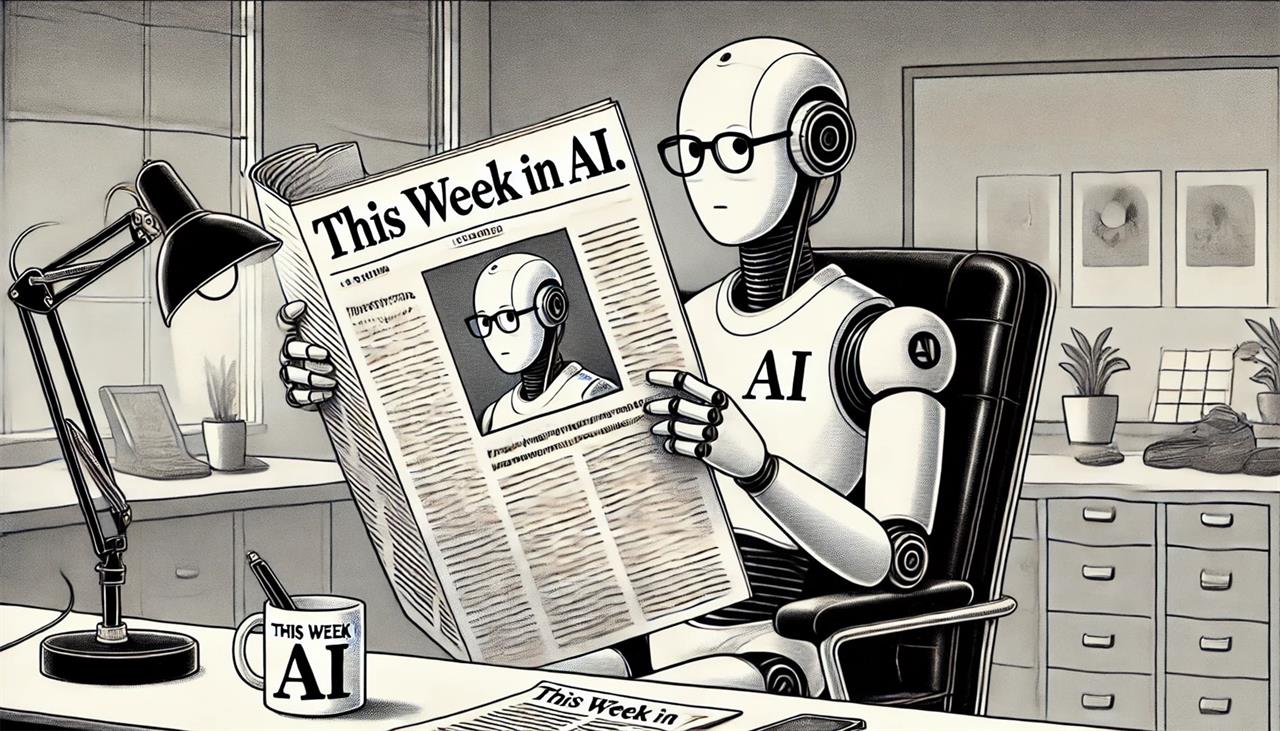This Week in AI: Amazon, Google follow Microsoft's Nuclear Efforts
For Oct. 18, 2024: Kindle AI, YouTube fights AI fakes, NVIDIA value jumps, NYT warns Perplexity, Apple AI study making waves.News

The seemingly never-ending "anything you can do, I can do better" of Silicon Valley took another turn this week, as Amazon and Google announced plans to invest in nuclear energy about a month after Microsoft announced its own deal with Pennsylvania's Three Mile Island. In each case, artificial intelligence is pushing the trend.
Amazon and Google said their separate investments will target small nuclear reactors, which generate up to a third the power of a typical nuclear reactor while also being quicker to build, The Associated Press reported. Still, the reactors likely won't come online until the 2030s.
“AI is driving a significant increase in the amount of data centers and power that are required on the grid,” Kevin Miller, Amazon vice president of global data centers for its web services division, told The Associated Press.
Amazon, Google and Microsoft's nuclear investments mark a shift in how energy is being funded. Tech giants increasingly are telling investors that they need access to vast amounts of power in order to develop and run their AIs. Meanwhile, energy experts have warned that energy grids are at risk of hitting their limits, potentially forcing municipalities to temporarily shut off power to some customers at peak demand, a process known as brown outs.
Kindle joins the AI race
Speaking of Amazon, the company began introducing AI technology into its Kindle line through its scribe tablet, which is designed for note-taking. The company said its new Kindle Scribe will now provide summaries of your notes, among other things. It costs $399, $60 more than its predecessor.
YouTube does more to fight AI fakes
YouTube is adding new labels to indicate that an uploaded video came from a real camera, and whether or not the images or sound were altered. The new label will be "captured with a camera" and it'll be added after the clip runs through Trupic, an authentication service.
To give a sense of what the label will look like, Trupic uploaded a video to YouTube called "I am really at the zoo" that adds a section to its description under the heading, "How this content was made."
Google has also been working to identify ai-generated content, requiring some partners to self-identify what the company calls "synthetic" manipulation, while also adding labels and other data to uploaded videos when it detects any issues.
NVIDIA stock keeps going up
When it first happened, people were surprised, but now NVIDIA's stock keeps hitting new highs. This week, the company's market capitalization rose above $3.4 trillion, after the company announced strong sales of its latest AI chips.
New York Times warns Perplexity
Perplexity, the unicorn startup that's self-styled as an AI-powered search engine, has a new publication accusing it of theft: The New York Times. Mere months after Forbes and Wired accused the startup of accessing their websites and taking data without permission, the NYT has now sent a "cease and desist" notice to the company over its content use, according to Reuters.
"The news publisher said in the letter, a copy of which it shared with Reuters, that the way Perplexity was using its content, including to create summaries and other types of output, violates copyright law," Reuters wrote. "NYT declined to provide additional comment on the matter."
NYT is also suing other AI companies, including ChatGPT maker OpenAI , over similar concerns. Other large publishers have instead chosen to strike deals with AI companies to allow licensed use of their content.
Apple study raises concerns about LLM reasoning
It's unusual when Apple publishes any internal information, so a study from six Apple engineers regarding AI "reasoning" got a lot of attention. There's a lot of details to it, but broadly, the researchers wrote that "Current LLMs are not capable of genuine logical reasoning," based on their study's results. Instead, the researchers wrote, AI attempts "to replicate the reasoning steps observed in their training data."Read more: AI Tools and Tips
- Getting started with LM Studio: A Beginner's Guide
- Meet Claude, the Best AI You've Never Heard of
- Hands-on with the Faster, Smarter ChatGPT-4o AI
- How to Get NVIDIA Chat with RTX: Local AI for Everyone
- Microsoft Surface Laptop Review: The First Copilot Plus PC
- What is TOPS? The AI Performance Metric Explained
Ian Sherr is a widely published journalist who's covered nearly every major tech company from Apple to Netflix, Facebook, Google, Microsoft, and more for CBS News, The Wall Street Journal, Reuters, and CNET. Aside from writing, he tinkers with tech at home, is a longtime fencer -- the kind with swords -- and began woodworking during the pandemic.












